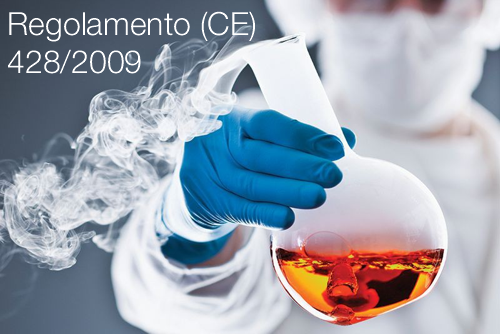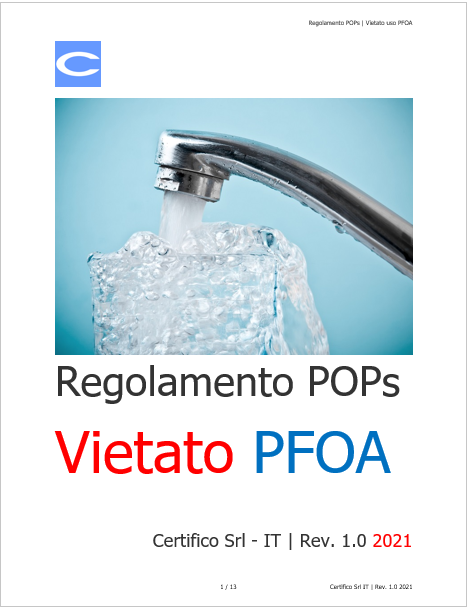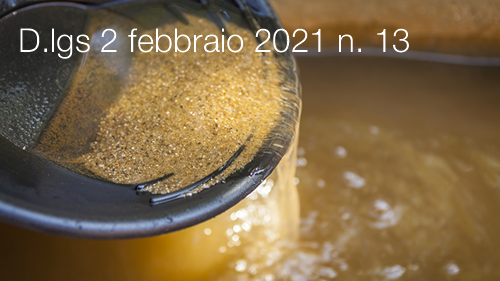// Documenti disponibili n: 46.592
// Documenti scaricati n: 36.662.043
Orgalime Brussels, 24 July 2017
L'Agenzia europea per le sostanze chimiche (ECHA) ha invitato i partecipanti a riferire sul progetto di proposta di una restrizione nell'ambito della regolamentazione in materia di registrazione, valutazione, autorizzazione e restrizione dei prodotti chimici (REACH). Ciò si applica ai composti di piombo utilizzati in articoli o parti di articoli realizzati con polimeri o copolimeri di PVC, nei casi in cui si raggiunge un certo grado di concentrazione di piombo.
L'apparecchiatura elettrica ed elettronica (EEE) è stata esclusa dal campo di applicazione di questa restrizione REACH proposta, a causa del fatto che la stessa restrizione è già applicabile in base alla direttiva RoHS.
Orgalime sostiene questa decisione, evitando inutili sovrapposizioni e conflitti tra i due atti legislativi. Tuttavia, poiché la formulazione attuale non esclude i componenti EEE, abbiamo chiesto di essere adeguato per chiarire che questa esclusione si applicherà anche a questi componenti. Riteniamo che ciò evita le distorsioni del mercato e garantisca condizioni di parità e un trattamento equo dei componenti EEE immessi sul mercato dell'UE prima di essere assemblati nell'EEE finale.
Position paper
Orgalime thanks ECHA for issuing its consultation on the draft proposal for a REACH restriction on lead compounds and their use in articles or parts thereof produced from polymers or copolymers of PVC if the concentration of lead (expressed as metal) is equal to or greater than 0.1% by weight of the PVC material.
Orgalime supports, in point 3(d), the exclusion of electrical and electronic equipment (EEE) covered under Directive 2011/65/EU on the restriction of the use of certain hazardous substances in electrical and electronic equipment (RoHS Directive) from the scope of the proposed REACH restriction.
The RoHS Directive already restricts the use of lead in EEE with a maximum 0.1% concentration values tolerated by weight in homogeneous materials. Therefore, the exclusion of EEE covered by the RoHS Directive from the scope of the REACH restriction is necessary to avoid any overlap and conflict with the RoHS Directive.
However, given the wording of the restriction which covers “articles or parts thereof”, we kindly ask you to specify that also components of EEE would be excluded from the restriction. This is in our view necessary to ensure a level playing field and fair treatment of EEE components placed on the EU market prior to assembly in final EEE. Otherwise, the lead restriction risks market distortions between EEE manufactured goods and imported equipment.
We would like to suggest the following wording for the second indent of point 3(d):
“electrical and electronic equipment covered under Directive 2011/65/EU of the European Parliament and of the Council of 8 June 2011 on the restriction of the use of certain hazardous substances in electrical and electronic equipment (RoHS Directive) andì components for such electrical and electronic equipment”.
Fonte: Orgalime
Normativa di riferimento:
Direttiva RoHS 2 Testo Consolidato

ID 9466 | Update 21.10.2021 / Allegato testo nativo e consolidati
Regolamento (CE) N. 428/2009 del Consiglio del 5 maggio 2009 che istituisce un regime comunitario di contro...

ID 10998 | 02.02.2021 | Documento riservato Abbonati Chemicals
In allegato:
- Documento completo Rev. 1.0 2021 del 02.02....

Attuazione della delega al Governo per l'adeguamento della normativa nazionale alle disposizioni del regolamento (UE) 2017/821 del Parlamento europeo e del Con...
Testata editoriale iscritta al n. 22/2024 del registro periodici della cancelleria del Tribunale di Perugia in data 19.11.2024